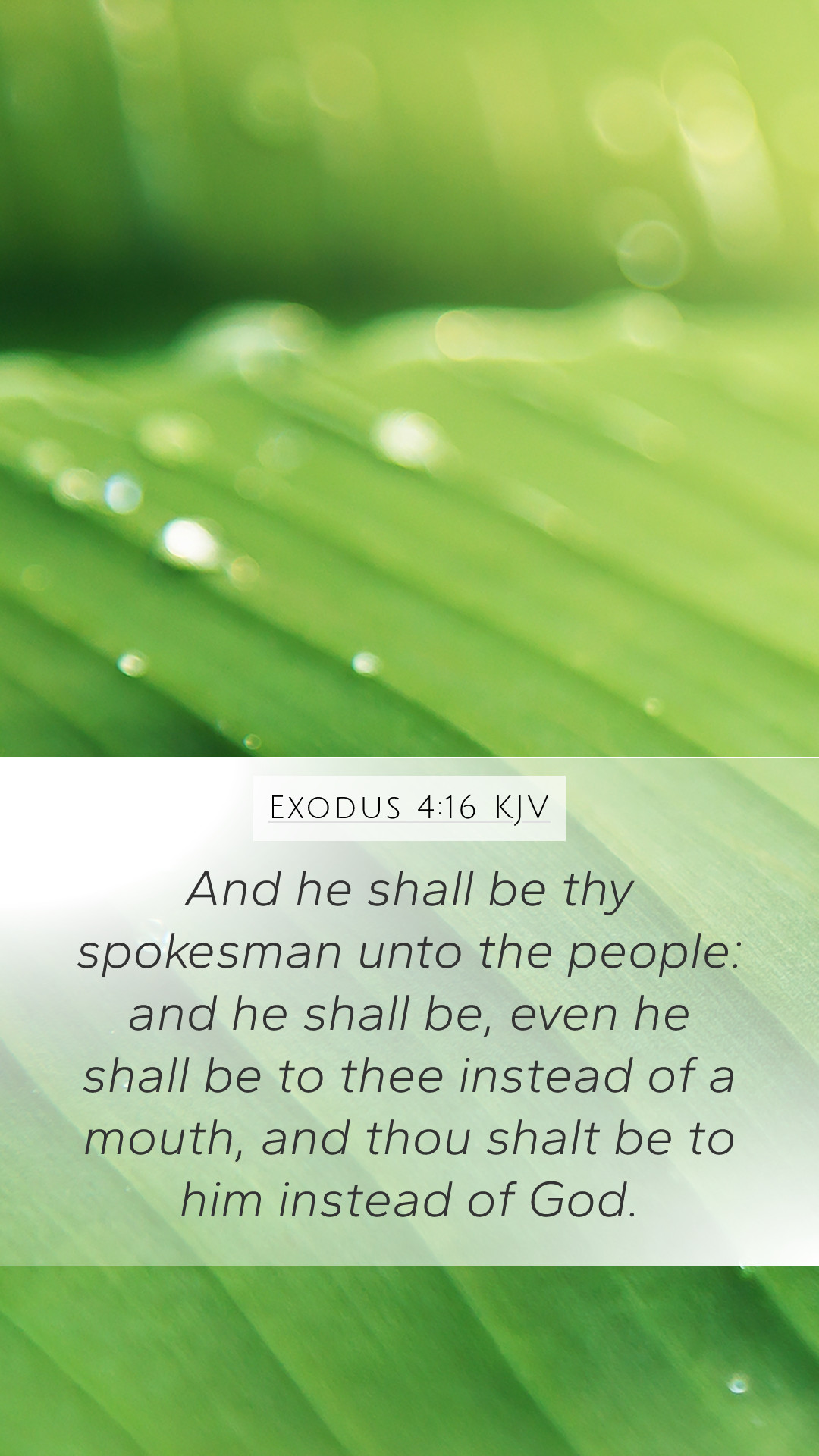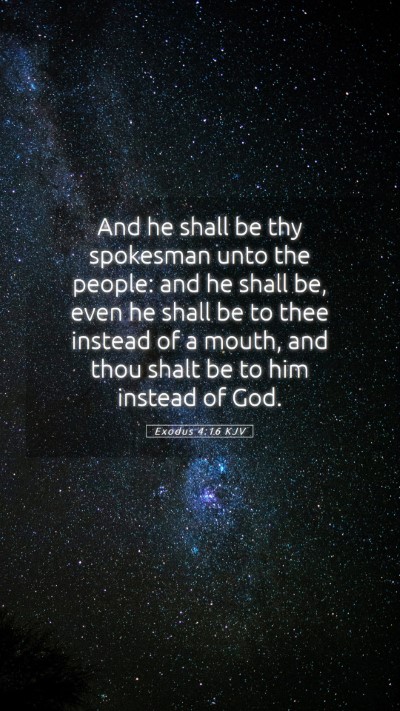Understanding Exodus 4:16
Exodus 4:16 (KJV): "And he shall be thy spokesman unto the people: and he shall be, even he shall be to thee instead of a mouth, and thou shalt be to him instead of God."
This verse captures a crucial moment in the calling of Moses to deliver the Israelites from Egypt. It emphasizes God's providence in providing a helper—Aaron, Moses' brother—who would speak on Moses' behalf. Below we explore a detailed interpretation of this verse through combined insights from renowned public domain commentaries.
Meaning and Interpretation
This verse reflects several important themes and practical applications.
- Divine empowerment: According to Matthew Henry's Commentary, this verse illustrates God's willingness to equip His chosen leaders with all necessary tools. Moses, initially resistant to the call due to his speech impediment, is assured of divine support through Aaron's partnership.
- Leadership dynamics: Albert Barnes notes that this arrangement signifies a complementary relationship where both Moses and Aaron have distinct roles but together fulfill God's command. Aaron's role as a spokesperson highlights the necessity of cooperation in fulfilling divine missions.
- God's authority: Adam Clarke points out that Moses is referred to as God in the eyes of Aaron. This signifies the authority granted to Moses as a prophet, where Moses' commands and directions should be viewed as coming from God Himself, establishing the sanctity and seriousness of their mission.
- Human limitations: The verse underscores a recurring biblical theme that God often calls imperfect individuals. Moses' reluctance serves as a reminder that human limitations do not preclude God's purposes. Instead, He often provides assistance to enable individuals to accomplish their God-given tasks.
Cross References
- Exodus 3:10: God commands Moses to go and deliver the Israelites.
- Exodus 3:14: The declaration of "I AM" signifies God's self-existence and authority.
- Acts 7:35-36: Refers to Moses as the leader of the people, affirming God's choice of him as a deliverer.
Practical Applications
This verse also illustrates various applications in the context of modern-day faith and practice:
- Reliance on God's provision: Believers can find comfort in knowing that God's calling comes with His provision. This encourages individuals to step out in faith, trusting that God will equip them.
- Support systems in ministry: The partnership between Moses and Aaron encourages collaboration within church ministries. It highlights the importance of surrounding oneself with capable individuals who can support shared responsibilities.
- Recognizing authority: Understanding the principles of spiritual leadership and the importance of respecting God-given authority helps maintain order and unity within faith communities.
Conclusion
The richness of Exodus 4:16 serves as a profound source of Bible verse interpretation, where God's meticulous planning and provision shine through. This verse not only provides deep theological insight but also practical guidance for believers seeking to understand their roles in God's overarching narrative.
Through in-depth Bible verse analysis, it becomes evident that the essence of this scripture spans beyond Moses and Aaron, extending to all who endeavor to heed God's call while relying on His guidance and support.


